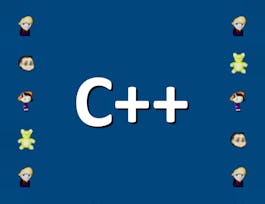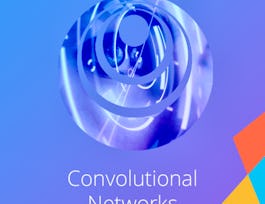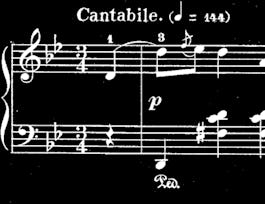In this course, you’ll review sonata form and learn how the piano sonata was revitalized in the 20th century, with a particular attention to composers from Russia, where the sonata was an especially popular and successful genre. You’ll study some of the most influential piano sonatas of the 20th century, in both Neo-Classical and avant-garde styles. This course will also expose you to a variety of lesser-known and more recent compositions, showing how the piano sonata genre continues to expand and to thrive.



The Piano Sonata: Russian and 20th-21st Century Composers
Ce cours fait partie de Spécialisation Exploring Piano Literature: The Piano Sonata

Instructeur : Matthew Bengtson
Inclus avec 
(13 avis)
Ce que vous apprendrez
Learn how the piano sonata was revitalized in the 20th century.
Study both Neo-Classical and avant-garde styles.
Explore the work of Russian composers, such as Scriabin, Medtner, and Prokofiev.
Compétences que vous acquerrez
- Catégorie : Piano sonatas
- Catégorie : Avant-garde style
- Catégorie : Neo-classical style
- Catégorie : Russian composers
Détails à connaître

Ajouter à votre profil LinkedIn
6 devoirs
Découvrez comment les employés des entreprises prestigieuses maîtrisent des compétences recherchées

Élaborez votre expertise du sujet
- Apprenez de nouveaux concepts auprès d'experts du secteur
- Acquérez une compréhension de base d'un sujet ou d'un outil
- Développez des compétences professionnelles avec des projets pratiques
- Obtenez un certificat professionnel partageable


Obtenez un certificat professionnel
Ajoutez cette qualification à votre profil LinkedIn ou à votre CV
Partagez-le sur les réseaux sociaux et dans votre évaluation de performance

Il y a 4 modules dans ce cours
In the first week, you'll be introduced to the course structure and to the fundamentals surrounding sonata form and the history of the genre.
Inclus
5 vidéos3 lectures1 devoir1 sujet de discussion
This week looks at Russian composers, who were highly invested in the piano sonata genre in the 20th century. We will focus primarily on the works of the three major sonata composers: Scriabin, Medtner, and Prokofiev. We will also get acquainted with a number of other important Russian composers in this genre.
Inclus
13 vidéos9 lectures2 devoirs3 sujets de discussion
This week looks at some of the most extraordinary piano sonatas composed after the Romantic Era (excluding Russians). We consider seven sonatas in some detail, by three French composers, two of German descent, and two born in America. The end of the course points towards the music of today by considering the extraordinary diversity of composers and works that led to it.
Inclus
8 vidéos10 lectures2 devoirs2 sujets de discussion
For more advanced learners, an Honors Formal Analysis is available in this final week (not required for completion of the course).
Inclus
4 lectures1 devoir1 sujet de discussion
Instructeur

Offert par
Recommandé si vous êtes intéressé(e) par Music and Art

University of Colorado System

DeepLearning.AI

Michigan State University
Pour quelles raisons les étudiants sur Coursera nous choisissent-ils pour leur carrière ?





Ouvrez de nouvelles portes avec Coursera Plus
Accès illimité à 10,000+ cours de niveau international, projets pratiques et programmes de certification prêts à l'emploi - tous inclus dans votre abonnement.
Faites progresser votre carrière avec un diplôme en ligne
Obtenez un diplôme auprès d’universités de renommée mondiale - 100 % en ligne
Rejoignez plus de 3 400 entreprises mondiales qui ont choisi Coursera pour les affaires
Améliorez les compétences de vos employés pour exceller dans l’économie numérique
Foire Aux Questions
Access to lectures and assignments depends on your type of enrollment. If you take a course in audit mode, you will be able to see most course materials for free. To access graded assignments and to earn a Certificate, you will need to purchase the Certificate experience, during or after your audit. If you don't see the audit option:
The course may not offer an audit option. You can try a Free Trial instead, or apply for Financial Aid.
The course may offer 'Full Course, No Certificate' instead. This option lets you see all course materials, submit required assessments, and get a final grade. This also means that you will not be able to purchase a Certificate experience.
When you enroll in the course, you get access to all of the courses in the Specialization, and you earn a certificate when you complete the work. Your electronic Certificate will be added to your Accomplishments page - from there, you can print your Certificate or add it to your LinkedIn profile. If you only want to read and view the course content, you can audit the course for free.
If you subscribed, you get a 7-day free trial during which you can cancel at no penalty. After that, we don’t give refunds, but you can cancel your subscription at any time. See our full refund policy.


